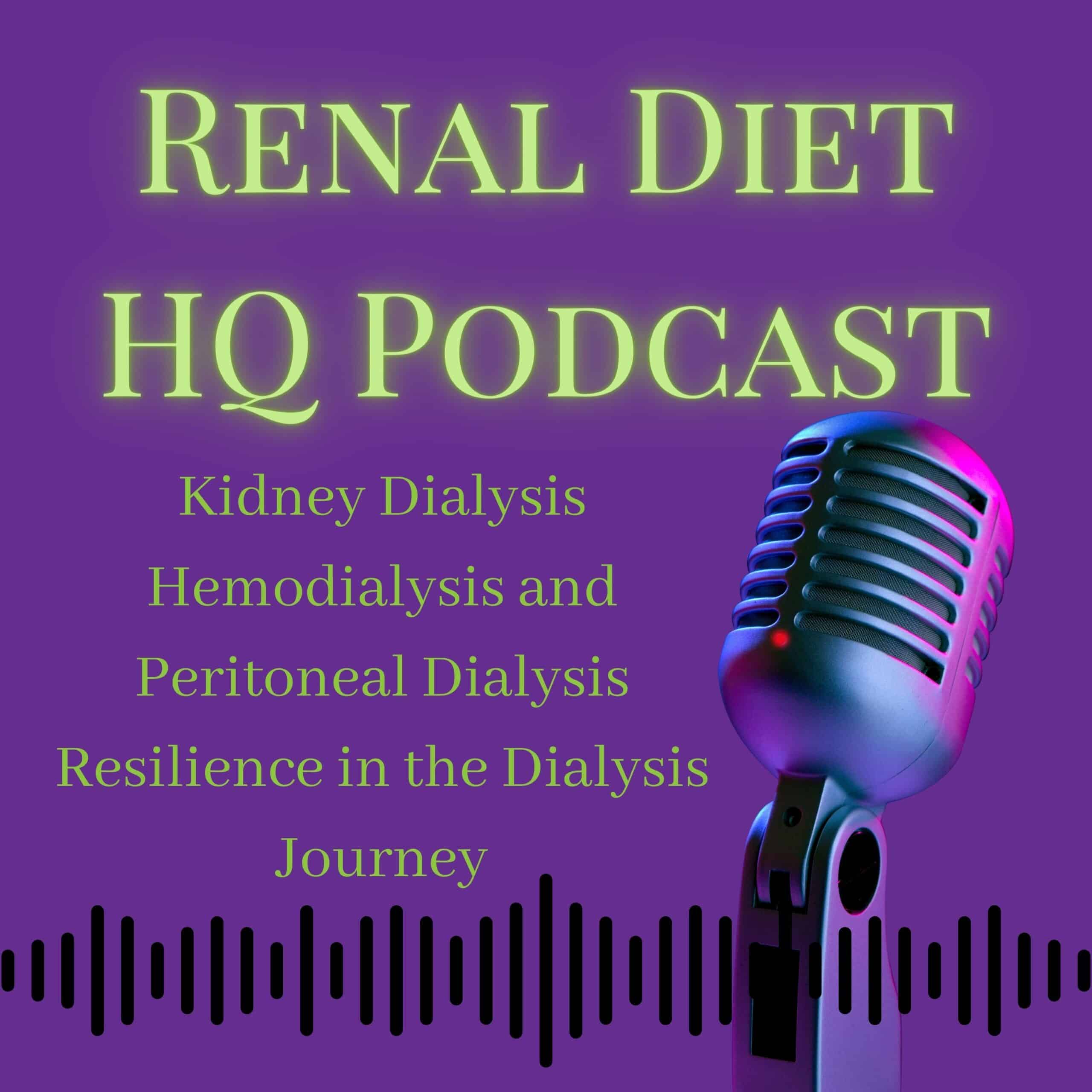Kidney Dialysis Hemodialysis and Peritoneal Dialysis Resilience in the Dialysis Journey- Podcast
Podcast: Play in new window | Download

Chronic Kidney Disease (CKD) is a progressive condition where the kidneys gradually lose their ability to function properly. In this comprehensive guide, we'll delve into the complexities and challenges of advanced CKD, particularly focusing on its advanced stage and end-stage renal disease (ESRD). Understanding and managing advanced CKD is crucial for both patients and caregivers, and this guide aims to provide valuable insights and information to navigate this journey effectively.
For More Recipes and Ideas --->> Get Your Free Meals and Recipes That Are Perfect for Pre-Dialysis Diets, Pre-Dialysis with Diabetes, or Dialysis Diets.
Exploring Symptoms of Advanced CKD
As CKD progresses to stages four and five, the symptoms become more pronounced and challenging. Fatigue, swelling, and shortness of breath are common issues, impacting daily activities and quality of life. Beyond the physical aspects, advanced CKD also has profound implications on lifestyle, emotional well-being, and daily routines. Recognizing and managing these symptoms is vital for effective disease management, ensuring a better quality of life despite the challenge
Dietary Adjustments in Advanced CKD
As CKD advances, dietary needs become crucial for managing the condition. Patients in stages four and five must closely monitor their intake of protein, phosphorus, potassium, and fluids. Protein becomes more limited, and attention to its quality is essential. Managing phosphorus and potassium levels is crucial to avoid complications, and fluid management becomes vital as failing kidneys struggle to maintain balance. Collaborating with healthcare providers, especially dietitians, for customized meal plans is crucial for effective nutritional management in advanced CKD.
Intensive Medical Oversight
With the decline in kidney function, intensive medical oversight becomes critical. Regular health monitoring involves more frequent visits to healthcare professionals like nephrologists and dietitians. Frequent blood tests and imaging tasks are necessary to track kidney performance and identify potential complications. While these appointments are essential for early detection and timely treatment adjustments, they also place significant demands on patients, emphasizing the importance of a strong support system.
Critical Role of Dialysis in Advanced CKD
Dialysis plays a critical role in treating advanced CKD, particularly in stage kidney disease. It is a life-sustaining treatment for individuals whose kidneys can no longer fulfill their function. Understanding the two primary forms of dialysis, hemodialysis and peritoneal dialysis, and their advantages, processes, and lifestyle implications is essential for patients and their families as they navigate the complexities of advanced CKD.
Access Creation for Hemodialysis
Hemodialysis, while life-saving, requires a surgical procedure to create a vascular access point. This access point, typically created in the arm, is crucial for efficient blood movement to and from the hemodialysis machine. The success of this procedure is vital for effective dialysis, and postoperative care and patient education are equally important to ensure a well-functioning access point.
Preparing Living Space for Peritoneal Dialysis
Peritoneal dialysis offers more flexibility as it can be done at home, but it requires specific modifications to create a suitable environment. This includes dedicating a clean and infection-free space, organizing supplies, and making necessary renovations for a comfortable treatment experience. Patient and caregiver education on maintaining sterility and creating a suitable space is crucial for successful peritoneal dialysis at home.
Demystifying the Dialysis Process
Education is a powerful tool in the dialysis journey. Understanding the dialysis process, its purpose, and its effects on the body can significantly reduce anxiety and help patients make informed decisions. Demystifying the types of dialysis, their procedures, benefits, and challenges empowers patients to actively engage in their treatment, ask pertinent questions, and take charge of their health.
Building a Support Network
Navigating the challenges of advanced CKD and dialysis is not a journey to be taken alone. Building a support network, whether through peer support groups, online communities, or professional counseling, is crucial. Engaging with others who have undergone similar experiences provides practical advice and emotional support, fostering a sense of community and understanding.
Quality of Life and Adaptation
While the journey through dialysis is complex and multifaceted, it doesn't solely define one's life. Shifting the focus from challenges to opportunities, patients can experience improvements in overall well-being. Setting realistic goals, celebrating small victories, and adapting to a new normal contribute to a fulfilling life. With the right support, information, and mindset, patients can thrive despite the challenges of dialysis.
Navigating advanced chronic kidney disease and the complexities of dialysis requires thorough preparation, emotional and psychological support, and a focus on the quality of life. This comprehensive guide aims to empower patients and caregivers with the knowledge and strategies needed to effectively manage advanced CKD, ensuring a smoother transition to dialysis and embracing the possibilities of life with this condition.
Learn more about The Renal Dietitians Secrets to Safe Eating for Kidney Health- Podcast
Learn more about What nutrients should I monitor in my diet?- Podcast







